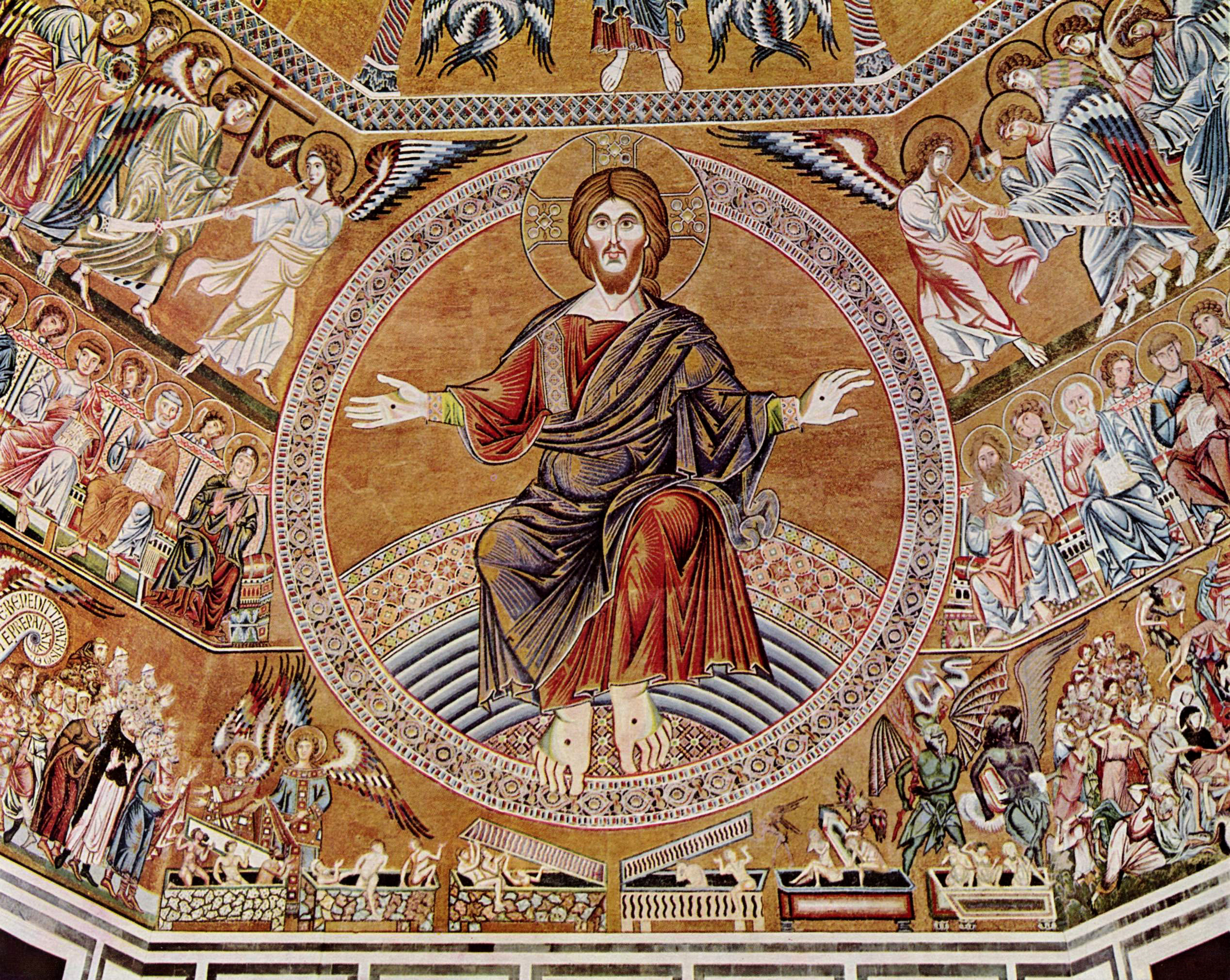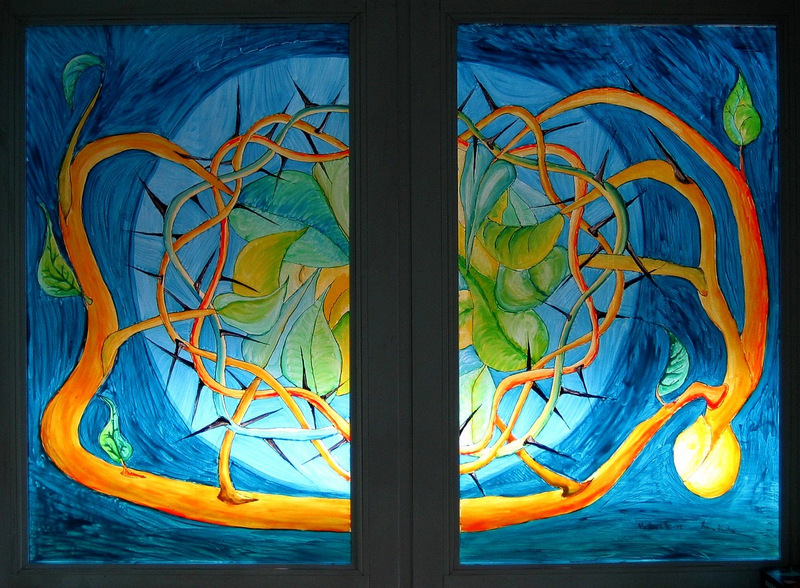Sunday 16th June 2024
1 Samuel 15:34 – 16:13
34 Then Samuel went to Ramah; and Saul went up to his house in Gibeah of Saul. 35 Samuel did not see Saul again until the day of his death, but Samuel grieved over Saul. And the LORD was sorry that he had made Saul king over Israel.
1 The LORD said to Samuel, “How long will you grieve over Saul? I have rejected him from being king over Israel. Fill your horn with oil and set out; I will send you to Jesse the Bethlehemite, for I have provided for myself a king among his sons.” 2 Samuel said, “How can I go? If Saul hears of it, he will kill me.” And the LORD said, “Take a heifer with you, and say, ‘I have come to sacrifice to the LORD.’ 3 Invite Jesse to the sacrifice, and I will show you what you shall do; and you shall anoint for me the one whom I name to you.” 4 Samuel did what the LORD commanded, and came to Bethlehem. The elders of the city came to meet him trembling, and said, “Do you come peaceably?” 5 He said, “Peaceably; I have come to sacrifice to the LORD; sanctify yourselves and come with me to the sacrifice.” And he sanctified Jesse and his sons and invited them to the sacrifice.
6 When they came, he looked on Eliab and thought, “Surely the LORD’s anointed is now before the LORD.”1 7 But the LORD said to Samuel, “Do not look on his appearance or on the height of his stature, because I have rejected him; for the LORD does not see as mortals see; they look on the outward appearance, but the LORD looks on the heart.” 8 Then Jesse called Abinadab, and made him pass before Samuel. He said, “Neither has the LORD chosen this one.” 9 Then Jesse made Shammah pass by. And he said, “Neither has the LORD chosen this one.” 10 Jesse made seven of his sons pass before Samuel, and Samuel said to Jesse, “The LORD has not chosen any of these.” 11 Samuel said to Jesse, “Are all your sons here?” And he said, “There remains yet the youngest, but he is keeping the sheep.” And Samuel said to Jesse, “Send and bring him; for we will not sit down until he comes here.” 12 He sent and brought him in. Now he was ruddy, and had beautiful eyes, and was handsome. The LORD said, “Rise and anoint him; for this is the one.” 13 Then Samuel took the horn of oil, and anointed him in the presence of his brothers; and the spirit of the LORD came mightily upon David from that day forward. Samuel then set out and went to Ramah.
We reflect on
- How Saul was a disappointment to the Lord and therefore Samuel and rejected as King?
- What we learn about the human characteristics that the Lord finds pleasing
- Through reflecting on the chapters leading up to today’s readings, the role of intercessory prayer. Central to Samuel’s role for Saul and the Isrealites, was his continual intercession on their behalf.
- The role of anointing and also it’s relevance today
Saul’s falling out of favour with the Lord was based on several things.
- 1 Samuel 13, where the Philistine’s were gathered against Saul, when Samuel did not come after 7 days to make the necessary sacrifice before the battle, as ‘the people began to slip away from Saul’ (1 Samuel 13:8), Saul offered to sacrifice himself. When Samuel later arrived on the same day, he informed Saul that Saul had displeased God.
- Soon after, Saul made a rash oath ‘Cursed be anyone who eats food before it is evening and I have been avenged on my enemies.” So none of the troops tasted food’. Saul’s son, Jonathan had not heard of the oath and ate some honeycomb that they had found on the ground.
- When the Lord, through Samuel, commanded Saul to attack the Amalekites, who were sinful, and totally destroy them: ‘And the LORD sent you on a mission, and said, ‘Go, utterly destroy the sinners, the Amalekites, and fight against them until they are consumed.’ 19 Why then did you not obey the voice of the LORD?’ (1 Samuel 15:18 – 19), Saul did not totally destroy the Amalekites but kept their king and the best of what they had captured. This again displeased the Lord.
I have always found, these three reasons challenging, but particularly the third. It is a stark reminder of the radical obedience expected of Saul and the people of Israel.
The key to how the Lord assesses human character is in verse 7:
“Do not look on his appearance or on the height of his stature, because I have rejected him; for the LORD does not see as mortals see; they look on the outward appearance, but the LORD looks on the heart.”
This is a reminder to us to attend to our heart in the process of purifying our heart.
Samuel’s role as an intermediary has interesting comparisons with the practices of other religions.
As we have noted before in relation to the difficulty of implementing a pure theocracy, that just as Israel wanted a king like other nations, so they had many other things in common with them. Pleading with God (intercessory prayer) and in the case of other nations, with their gods; objects and rituals of worship. Israel had the ark of the Covenant, the priesthood and all that was associated with it including the altar, various other religious objects and the tent of meeting.
It seems very difficult for us, as human beings, to have an unmediated relationship with God and have no divine things or images. As Christians of course, we believe that Jesus Christ is the one true mediator and in the Reformation tradition, that we are saved by faith in him alone. But it is important to note, that in the Catholic traditions of the church, the importance of the sacraments. Anointing with oil is one of the sacraments. It has been my experience in over thirty years of ministry, that the sacrament of anointing with oil, is an amazing gift from God. I always had the practice of anointing people, who wish to be anointed for any particular situation or condition, to anoint them after they received holy Communion. Over the years, I’ve seen a number of miracles of healing resulting from this. Consequently, just as anointing was powerful in the process of David becoming king, so anointing can be very powerful in our own lives. I do need to add that I have also, when necessary, anointed people in other contexts
Some traditions speak of the anointing of the Holy Spirit, this is another process of anointing. One might say the sacrament of anointing is one way that the Holy Spirit anoints people.
Another aspect of Samuel’s intercession with the Lord and the various sacrifices and their parallels with other religions, is the radicalness of Jesus teaching on prayer. Whilst supporting constant intercession in the story of the woman and the unjust judge, his foundational teaching on prayer in Matthew 6, is radically different.
2 Corinthians 5:6 – 17
6 So we are always confident; even though we know that while we are at home in the body we are away from the Lord— 7 for we walk by faith, not by sight. 8 Yes, we do have confidence, and we would rather be away from the body and at home with the Lord. 9 So whether we are at home or away, we make it our aim to please him. 10 For all of us must appear before the judgment seat of Christ, so that each may receive recompense for what has been done in the body, whether good or evil.
11 Therefore, knowing the fear of the Lord, we try to persuade others; but we ourselves are well known to God, and I hope that we are also well known to your consciences. 12 We are not commending ourselves to you again, but giving you an opportunity to boast about us, so that you may be able to answer those who boast in outward appearance and not in the heart. 13 For if we are beside ourselves, it is for God; if we are in our right mind, it is for you. 14 For the love of Christ urges us on, because we are convinced that one has died for all; therefore all have died. 15 And he died for all, so that those who live might live no longer for themselves, but for him who died and was raised for them.
16 From now on, therefore, we regard no one from a human point of view;2 even though we once knew Christ from a human point of view,3 we know him no longer in that way. 17 So if anyone is in Christ, there is a new creation: everything old has passed away; see, everything has become new!
We reflect on:
- walking by faith not by sight
- where we see our true home
- what it will be to appear before the judgement seat of Christ
- why Paul said in verse 13 ‘for if we are beside ourselves, it is for God; if we are in our right mind, it is for you’.
- The centrality of Paul’s claim that God’s love for us in Christ is such that ‘one has died for all; therefore all have died. And he died for all, so that those who live might live no longer for themselves, but for him who died and was raised for them’.
- The significance of the new creation and no longer seeing Christ from a ‘human point of view’
In a highly scientific culture, walking by faith and not by sight can be very challenging. There is so much we have to work out with our minds in our lives. Unless we clearly hear from the Lord, and even when we do, to what extent should we research our information? Walking by faith can be just poor decision making.
An important issue of our Christian faith is to reflect where our true home is. Richard Foster wrote a book published in the nineteen nineties ‘Prayer: finding a hearts true home’. The true foundation for our life in this world and our preparation for the time to come, is to find our hearts true home.
When we reflect upon Christ’s judgement, in the past it has often been the way of the church to see this judgement in harsh punitive terms. But Christ judges us in love; a love based on the fact that as Paul says ‘20 But in fact Christ has been raised from the dead, the first fruits of those who have died.6 21 For since death came through a human being, the resurrection of the dead has also come through a human being; 22 for as all die in Adam, so all will be made alive in Christ’. (1 Corinthians 15:20 – 22)
The tension in in this passage and in passages like it, some of which I have discussed previously, is the universality of verse 22. Note that Paul says ‘so all’, rather than ‘we all’. If the benefits of the resurrection were only for Christians, then I doubt whether he would have said ‘so all’. The call to the Christian life, is the people ‘might live no longer for themselves, but for him who died and was raised for them’.
This is another example of where Christian exclusivity is not necessarily consistent with the deeper meaning of the revelation. This is also emphasised by Paul speaking of a new creation, creation involves everyone.
I have always found Paul’s saying that we no longer see Christ from ‘a human point of view’, as profoundly evocative as it resonates into a deep place in the very heart of my being. Too often we think of Jesus in human terms, that is from a human point of view, rather than how he is now and how he will appear to us in the fullness of time.
Mark 4:26 – 34
26 He also said, “The kingdom of God is as if someone would scatter seed on the ground, 27 and would sleep and rise night and day, and the seed would sprout and grow, he does not know how. 28 The earth produces of itself, first the stalk, then the head, then the full grain in the head. 29 But when the grain is ripe, at once he goes in with his sickle, because the harvest has come.”
30 He also said, “With what can we compare the kingdom of God, or what parable will we use for it? 31 It is like a mustard seed, which, when sown upon the ground, is the smallest of all the seeds on earth; 32 yet when it is sown it grows up and becomes the greatest of all shrubs, and puts forth large branches, so that the birds of the air can make nests in its shade.”
33 With many such parables he spoke the word to them, as they were able to hear it; 34 he did not speak to them except in parables, but he explained everything in private to his disciples.
We reflect on:
- how little control we really have over much of life and our own life; just as in the process of the seed growing to fullness of life.
- How the process of sowing and reaping applies to a spiritual journey
- the image of the kingdom of God being like a mustard seed.
- The deeper meaning of the parables. What might Jesus have said to them in private? This is dealt with in more detail in the beginning of the chapter.
The parables of Jesus, as intimated in the last verses of this passage, revealed deep truth of the kingdom of God. A number of them are based on, what was central to the common life of many people of that time, the process of sowing and reaping. We, particularly in first world countries, are somewhat divorced from this process; except for avid gardeners!
The likening of the kingdom of heaven to a mustard seed in today’s reading, can be compared with the famous parable of Jesus, the parable of the Sower, which begins this chapter. These two parables, as I constantly reflect on, leads us away from a more literal, written understanding of the word of God, but rather are seeing is something like a seed that is planted in our hearts and grows. ‘The sower sows the word. (v 14) Jesus explains this in considerable detail in the parable of the sower, where he speaks of the different ground that the seed can fall on. People can be likened of different types of ground but there can also be different types of ground within ourselves.
The image of the mustard seed helps us to understand that the seed of the word planted in our heart is so tiny. As with Samuel, we need to learn to recognise the word of the Lord, this seed, so small, that is planted in our hearts.
Attribution:
Christ in Judgement:
Christ in Judgment, from Art in the Christian Tradition, a project of the Vanderbilt Divinity Library, Nashville, TN. http://diglib.library.vanderbilt.edu/act-imagelink.pl?RC=47457 [retrieved June 16, 2018]. Original source: http://www.yorckproject.de.
The Harvest:
Alonzo, Jorge. Soon for the harvest…, from Art in the Christian Tradition, a project of the Vanderbilt Divinity Library, Nashville, TN. http://diglib.library.vanderbilt.edu/act-imagelink.pl?RC=55325 [retrieved June 16, 2018]. Original source: http://www.flickr.com/photos/forsersa/3059469099/.
The Mustard Seed
Unidentified. Parable of the Mustard Seed, from Art in the Christian Tradition, a project of the Vanderbilt Divinity Library, Nashville, TN. http://diglib.library.vanderbilt.edu/act-imagelink.pl?RC=55890 [retrieved June 16, 2018]. Original source: https://www.flickr.com/photos/tin-g/90272565.


